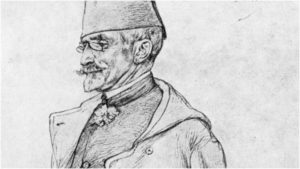
Camille Du Locle’s Important Place In Operatic History
By David SalazarCamille du Locle is not a particularly recognizable name in the world of opera. Born on July 16, 1932, only the greatest opera connoisseurs may have a clue as to who he was. And even then, there’s a chance you might not have heard of him even then.
And yet he is an important performance in the history of opera, even if not an iconic one. Here are a few of the important achievements of Camille du Locle.
Director of Opéra Comique
Between 1870 and 1876, Du Locle was director of the Opéra Comique, leading four major world premieres during his tenure. Among these operas were Bizet’s “Djamileh,” Saint-Saëns’ “La Princesse Jaune,” Delibes’ “Le Roi l’a Dit” and…
Mounting “Carmen”
The famed opera went through a tough gestation period with du Locle having to battle with joint director Adolphe de Leuven, who did not want to mount “Carmen.” Du Locle, as the director of the Opéra Comique, kept firm and proved crucial in the casting of the leading lady. Despite a tough outing in its initial runs, Du Locle kept the opera in the repertoire at the Opéra Comique in 1875 after Bizet’s death though the work was not quite the success it would grow to be.
Making ‘Aida’ Happen
Du Locle didn’t write the libretto for “Aida” or have a direct role in bringing to life the great Verdi opera, but he did push the composer into writing the opera until Verdi relented. If not for Du Locle’s tenacity, we might have never seen one of the all-time great operas come to life.
Librettist
He didn’t put out a lot of famed works as librettist, working with Ernest Reyer on “Sigurd” and “Salammbo.” But he was crucial to the creation of Verdi’s “Don Carlo.” Without Du Locle, we might not have Verdi’s great masterpiece. After the death of Joseph Méry, Du Locle came in and finished the libretto.


